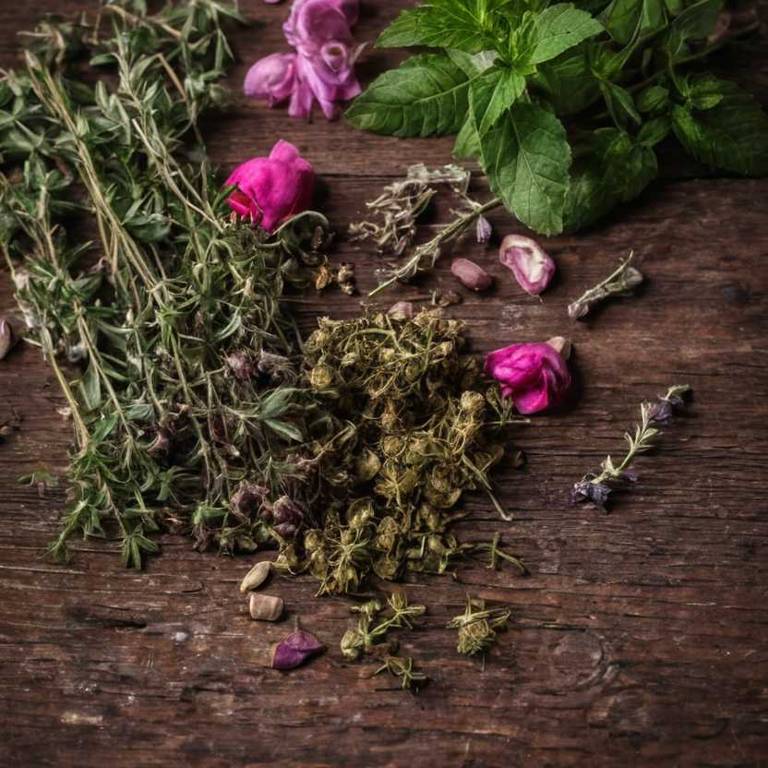French Rose (Rosa gallica)
French Rose (Rosa gallica) is a member of the Rosaceae family, native to Europe, Western Asia, and Northern Africa. Traditionally, its flowers, leaves, and stems have been used for infusions, decoctions, and poultices.
This herb is particularly valued for its astringent, tonic, and anti-inflammatory actions, and has a long history of use in european herbal medicine, mediterranean herbal traditions, and traditional chinese medicine.

Quick Facts / Key Information
| Common Name | French Rose |
|---|---|
| Scientific Name | Rosa gallica |
| Plant Family | Rosaceae |
| Genus | Rosa |
| Species | gallica |
| Native Range | Europe, Western Asia, Northern Africa |
| Plant Parts Used | Flowers, Leaves, Stems |
| Primary Medicinal Actions | Astringent, Tonic, Anti-Inflammatory |
| Primary Traditional Systems | European Herbal Medicine, Mediterranean Herbal Traditions, Traditional Chinese Medicine |
| Historical Preparation Methods | Infusion, Decoction, Poultice |
Botanical Identity
- Scientific Name
- Rosa gallica
- Common Name
- French Rose
- Synonyms / Alternative Names
- Old Blush Rose, Gallic Rose, Gallica Rose
- Plant Family
- Rosaceae
- Genus
- Rosa
Botanical Description
- Growth Habit
- Perennial herbaceous plant.
- Height
- 1.5 to 2.5 meters tall.
- Leaves
- Opposite, broad, leathery leaves with upper surface glabrous and dark green, lower surface lighter green and hairy along midrib.
- Flowers
- Flowers are actinomorphic, pink to red in color, arranged in solitary or clustered inflorescences, with five petals and five sepals, each with a narrow, elongated base and a rounded apex.
- Stems
- Upright growth habit with opposite branching, glabrous surface, and thorned nodes.
Traditional Uses / Historical Use
Traditional Systems
- European Herbal Medicine
- Mediterranean Herbal Traditions
- Traditional Chinese Medicine
- Japanese Kampo Medicine
Historical Preparation Methods
- Infusion
- Decoction
- Poultice
- Oil Infusion
Medicinal Actions
- Astringent
- As described in traditional systems, a gentle astringent, in drying-focused uses.
- Tonic
- In herbal texts, considered a calming tonic, for foundational support.
- Anti-inflammatory
- In herbal literature, noted as a mild anti-inflammatory, in topical or internal use contexts.
- Carminative
- Traditionally described as a cooling carminative, within digestive system contexts.
Active Compounds
- Flavonoid
- A group of naturally occurring compounds commonly present in many flowering plants.
- Tannin
- A group of compounds frequently present in plant tissues exposed to herbivory.
- Phenolic Acid
- Organic acids commonly occurring as part of plant secondary metabolism.
- Coumarin
- Plant-derived compounds often associated with fragrance-related chemistry.
Modern Research Overview
This section is reserved for future summaries of scientific research related to this plant. As additional verified sources are reviewed, relevant study information will be added here.
Safety & Contraindications
- General Precautions
- Some general precautions have been associated with the use of this herb.
- Contraindications
- Contraindications for this herb are not clearly established in available sources.
- Allergies
- Information regarding allergic responses to this herb is limited.
- Drug Interactions
- There is insufficient evidence to determine whether this herb interacts with pharmaceutical drugs.
- Toxicity
- Toxic effects associated with this herb have not been well documented.
- Pregnancy & Breastfeeding
- Safety during pregnancy and breastfeeding has not been well documented.
Preparation & Usage Methods
- Infusion
- A preparation method involving steeping plant material in heated water for a short period.
- Decoction
- Decoctions are made by heating plant material in water for an extended time.
- Poultice
- Plant parts are crushed or moistened and placed directly on the body.
- Tincture
- Alcohol is used as a solvent to extract plant constituents over time.
- Infused Oil
- This method allows plant material to release constituents into oil.
Growing, Harvesting & Storage
Growing / Cultivation
- Soil
- Prefers loamy soil with well-drained conditions. Typically grows best in organically rich soils.
- Sunlight
- Thrives in full sun. Tolerates full sun to partial shade.
- Watering
- Prefers well-balanced moisture levels. Tolerates periodic dry conditions.
Medical Disclaimer
The information provided on this page is for educational and informational purposes only. It is not intended to diagnose, treat, cure, or prevent any medical condition. Always consult a qualified healthcare professional before using any herb for medicinal purposes.